Fighting Back Against Rheumatoid Arthritis: Your Food Can Be Your Ally

By Gianluca Tognon, PhD
Rheumatoid arthritis (RA) can feel like a formidable foe, but there's good news! Recent research shows that what you eat can significantly impact how you manage the disease. This isn't just about deprivation – it's about harnessing the power of food to feel better and live a fuller life.
Food as a Trigger?
Science suggests certain foods might trigger RA symptoms. Think of them as red flags. Studies point to proteins and lectins in some foods as potential culprits. On the flip side, omega-3 fatty acids found in fish and moderate alcohol consumption might offer some protection, especially for those at high risk. Interestingly, obesity not only increases your risk of RA but also worsens its effects.
This is linked to a protein called leptin, produced by fat cells. Sugary drinks and high-fat diets further exacerbate symptoms. The takeaway? Embrace healthier eating habits!
Your Gut - A Secret Weapon Against Rheumatoid Arthritis?
Recent research suggests the health of your gut bacteria, also called microbiota, might be linked to RA development. Think of your gut as a bustling ecosystem. When this ecosystem gets thrown off balance, like in conditions like celiac disease, it can trigger inflammation.
This imbalance might also play a role in RA. But here's the good news: there are ways to restore balance and potentially reduce inflammation! Probiotics, like Bacillus coagulans, and prebiotics, like inulin, are like superheroes for your gut.
They help bring back the good bacteria and keep the bad ones in check, which might help manage RA.
Another interesting discovery is the role of short-chain fatty acids. These are basically byproducts of the party your gut bacteria throw when they chow down on your food. One such fatty acid, propionate, seems to have anti-inflammatory properties.
Studies show it can help reduce inflammation in tissues and calm down the immune system's overreaction, offering promise as a future treatment for RA. While more research is needed, understanding the gut-RA connection is exciting! It opens doors to new possibilities for managing RA through dietary changes and gut-supporting supplements.
So next time you think about gut health, remember it might be a secret weapon in your fight against RA!
Zinc and Cadmium: A Balancing Act
There's another element to consider in the gut and RA story: minerals! Trace elements like zinc and cadmium can influence RA. Zinc, found in oysters, red meat, and chickpeas, is crucial for managing arthritis. It helps the body's natural anti-inflammatory processes and keeps joints healthy.
On the other hand, cadmium, found in cigarette smoke and some root vegetables such as potatoes and carrots, can worsen inflammation. This is why monitoring zinc and cadmium levels might be valuable if you suffer from RA.
By ensuring adequate zinc intake and limiting cadmium exposure, you might be able to give your body a fighting chance against RA.
The Power of Omega-3s: Your Fishy Friend
Among dietary interventions, omega-3 fatty acids (n-3 PUFAs) shine bright for their anti-inflammatory properties. Studies show that supplementing with EPA and DHA (found in fish oil) can reduce pain, inflammation, and improve overall disease activity. Fish oil supplementation, rich in n-3 PUFAs, emerges as a promising therapeutic strategy, offering relief and enhancing overall quality of life.
Plants to the Rescue: Natural Anti-inflammatory Powerhouses
Plants and herbs are emerging as powerful allies in the fight against chronic inflammation. Polyphenols and Powerhouse Extracts: Turmeric, pomegranate extract, and quercetin are just a few examples of plant-based compounds showing promise in reducing RA symptoms. These natural anti-inflammatories offer a safe and effective way to manage your condition.
Don't underestimate the power of your spice rack! Adding everyday spices like garlic, ginger, cinnamon, or saffron to your meals might also help reduce RA symptoms. But the benefits go beyond spices! Certain foods seem to have preventive properties against RA onset.
Include mushrooms, citrus fruits, and dairy products in your daily meals. By incorporating these natural anti-inflammatory powerhouses into your diet, you might be building a shield against RA.
So, next time you're planning your meals, consider adding a dash of these natural wonders. You might be surprised by the difference they can make in managing your RA!
The Mediterranean Diet Dilemma
The Mediterranean diet (MD) is known for its heart-healthy and overall wellness benefits, but can it help with RA?
The answer, unfortunately, isn't a simple yes or no.
Here's the story so far:
Some studies show a positive connection between the MD and reduced RA risk, especially in men. However, other large studies haven't found a clear link between the MD and RA development in women.
So, what gives? Well, there might be more to the story. A smaller study suggests that combining the MD with exercise in women with RA might improve their quality of life.
The MD is packed with good stuff! It's rich in monounsaturated fatty acids (MUFAs) and omega-3 polyunsaturated fatty acids (PUFAs), both known for their anti-inflammatory properties. This could be key in managing RA, a disease driven by inflammation.
Plus, the MD encourages moderate wine consumption and fruits rich in polyphenols, which also have anti-inflammatory effects. The research on the MD and RA is ongoing. While the MD might not be a guaranteed shield against RA, its focus on healthy fats and anti-inflammatory foods could still be beneficial for managing the disease.
Fasting for Relief? Exploring its Role in Rheumatoid Arthritis
Fasting has been a cornerstone of various cultures and religions for centuries. But beyond its spiritual significance, science is now exploring its potential benefits for health conditions like Rheumatoid Arthritis (RA). Can skipping meals offer relief from RA's inflammation and pain?
One interesting area of research involves observing RA patients during Ramadan, the Muslim holy month marked by daily fasting. While results haven't been entirely consistent, some studies suggest tangible improvements for RA patients who fast.
However, others show benefits even in non-fasting RA patients during Ramadan. These findings, despite some inconsistencies, highlight the potential of fasting as a complementary approach to managing RA symptoms.
The link between fasting and improved RA outcomes is promising, but more research is needed to fully understand its therapeutic potential. However, these initial findings offer a glimmer of hope for those living with RA.
Fasting might emerge as a valuable tool alongside traditional therapies, aiding individuals in their journey towards better health and well-being.
Sip Smart, Feel Better: Your Guide to RA-Friendly Beverages
Living with Rheumatoid Arthritis (RA) means making smart choices about your health, and that includes what you drink. Certain beverages can worsen symptoms or interact with medications, while others offer surprising benefits. Let's explore the world of drinks and see which ones are your RA-friendly allies!
Hydration is Key
Water may seem simple, but it's the foundation of good health. While research on water's direct impact on RA is limited, staying hydrated is crucial for overall well-being.
Fruit Power
Looking for a natural anti-inflammatory boost? Fresh fruit juices rich in polyphenols, like pomegranate and orange juice, might be your answer! Studies suggest they can reduce pain and disease activity in RA patients. Beetroot juice, with its betalain pigments, also shows promise in improving joint function and reducing oxidative stress.
Tea Time?
Maybe - Green tea, packed with the antioxidant EGCG, might offer anti-inflammatory benefits for RA. However, research on other caffeinated teas is limited. Coffee's role is also unclear – while some studies suggest a link to increased RA risk in women, moderate coffee consumption might have other health benefits.
Cocoa Considerations
Cocoa boasts flavanols with potential anti-inflammatory properties. While human studies are limited, cocoa might be worth exploring for its anti-inflammatory potential in RA.
Milk Matters
The jury's still out on milk. Some studies suggest benefits, while others show a possible link between milk consumption and RA development. Talk to your doctor to see if milk is right for you.
Sugary Soda?
No Way! - Sugary drinks are a double whammy for RA. The high sugar content can worsen inflammation and contribute to disease progression. Studies even link regular soda consumption to an increased risk of RA.
Alcohol in Moderation
Moderate red wine consumption might be helpful – thanks to resveratrol, a compound with antioxidant and anti-inflammatory properties. But remember, moderation is key! Excessive alcohol intake can damage your liver and interact with medications.
The Bottom Line
When it comes to beverages and RA, making informed choices is key. Water is your best friend, while fresh fruit juices with specific properties can offer a natural anti-inflammatory boost.
Coffee and tea require a cautious approach, and milk needs personalised consideration. Avoid sugary drinks altogether, and remember, moderate red wine consumption might be okay, but always talk to your doctor first. By being a smart sipper, you can choose beverages that support your RA management journey!
Conclusion
In the realm of RA, dietary interventions offer a ray of hope. By making mindful dietary choices, individuals can mitigate RA risk, alleviate symptoms, and improve treatment outcomes.
From incorporating omega-3-rich foods to embracing antioxidant-rich diets, the journey towards RA management begins with the plate. As science unravels the intricate interplay between diet and RA, empowering patients with dietary knowledge becomes paramount, ushering in a new era of holistic RA care.
As science continues to unveil the intricate relationship between diet and RA, personalised nutritional strategies emerge as indispensable tools in the armamentarium against this debilitating condition.
RA-friendly recipes
Here are a few recipe ideas that incorporate the recommendations from the article:
Omega-3 Power Bowl:
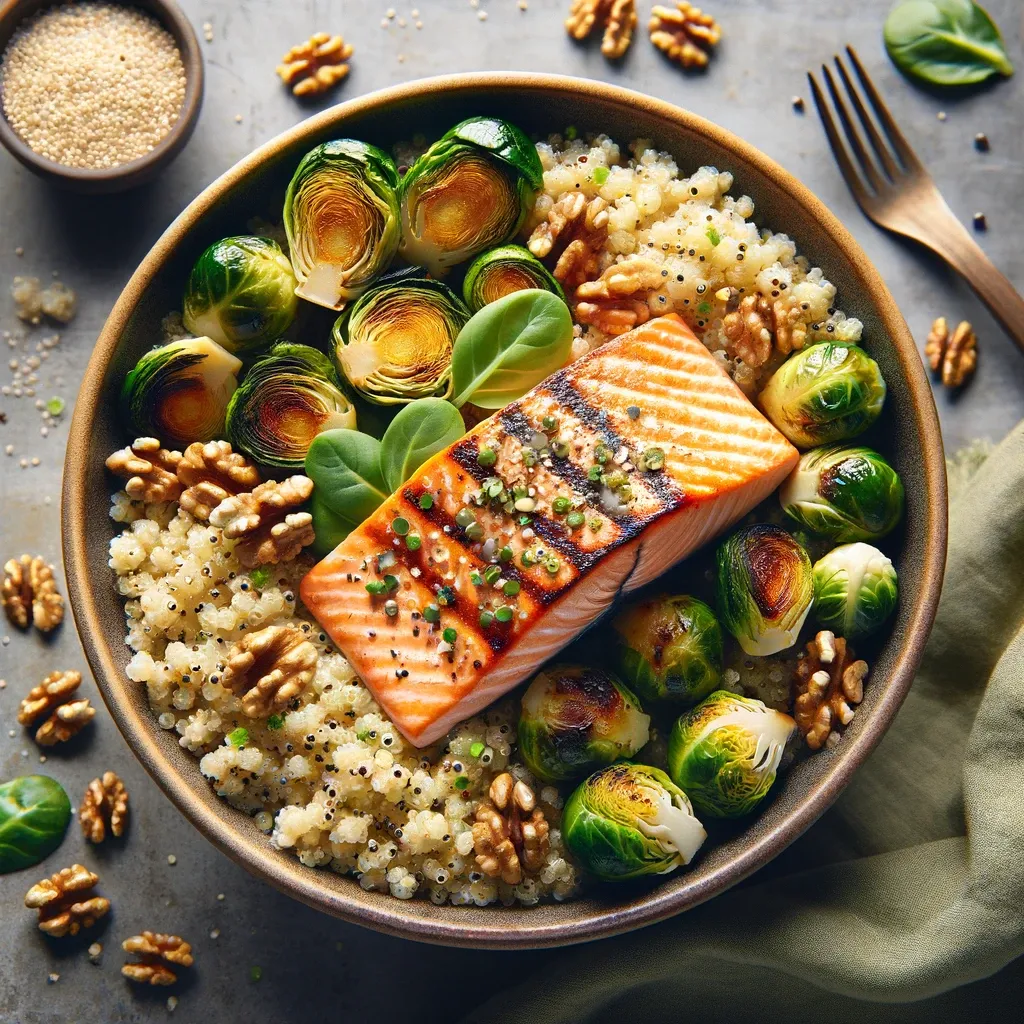
Ingredients: Salmon fillet (baked or grilled), Quinoa, cooked, Roasted Brussels sprouts, Chopped walnuts, Lemon vinaigrette.
Directions:
This dish is packed with omega-3 fatty acids from the salmon, while the quinoa provides fiber and protein. Brussels sprouts are rich in antioxidants, and walnuts add healthy fats. The lemon vinaigrette is a light and flavorful dressing.
Spicy Anti-Inflammatory Soup:
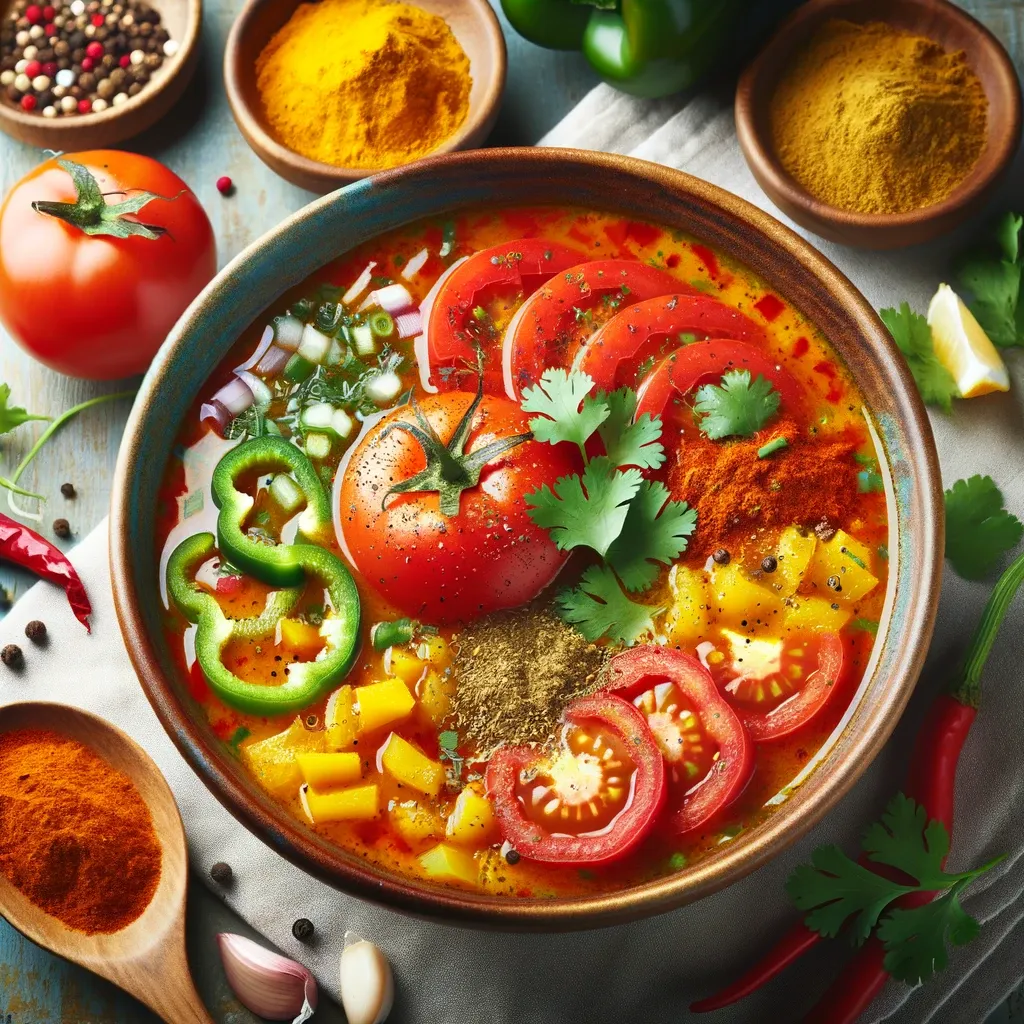
Ingredients: Vegetable broth, Chopped tomatoes, Diced bell peppers, Chopped onions, Garlic cloves (minced), Turmeric powder, Ginger powder, Ground cumin, Coconut milk (optional), Chopped fresh cilantro (for garnish).
Directions:
This soup is brimming with anti-inflammatory ingredients like turmeric, ginger, and vegetables. Coconut milk adds a touch of creaminess (be mindful if you have dairy sensitivities). Garnish with fresh cilantro for a burst of flavour.
Gut-Friendly Breakfast Scramble:
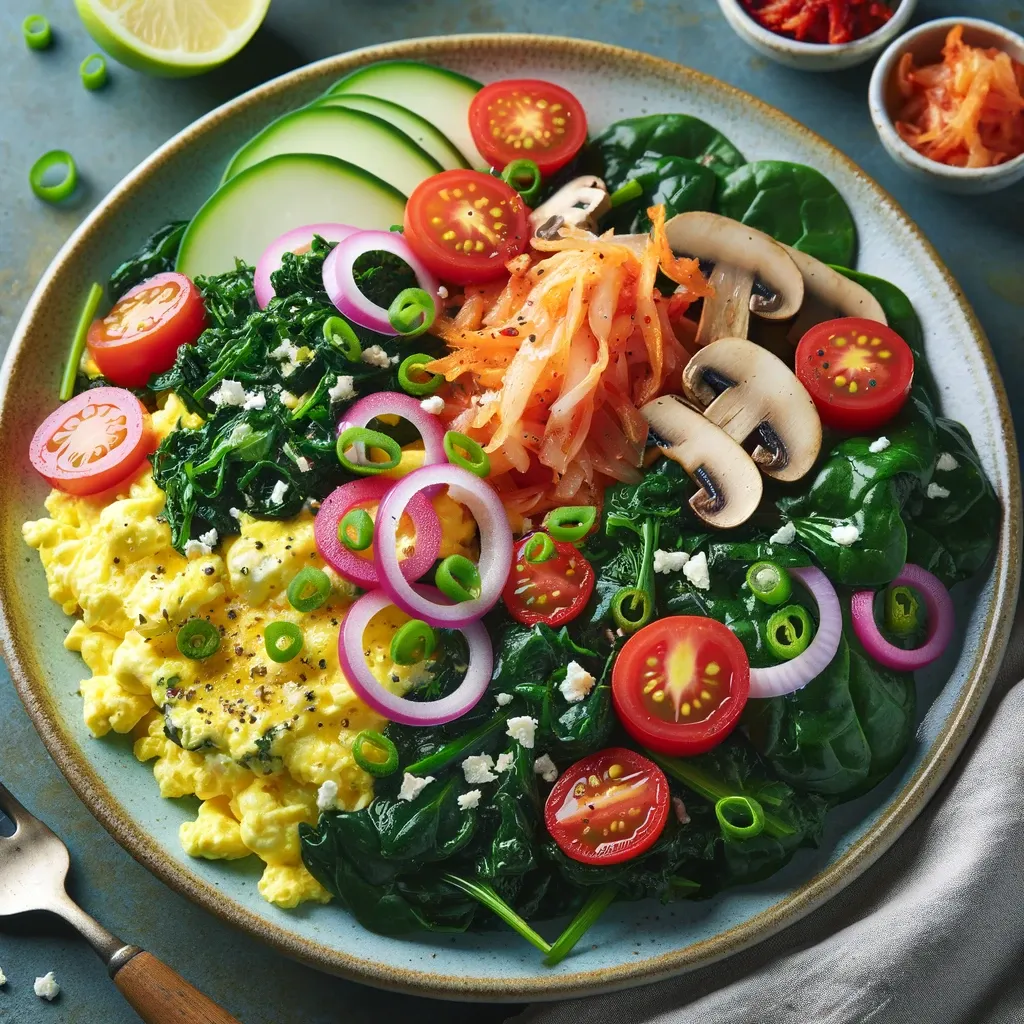
Ingredients: Eggs, Chopped spinach or kale, Diced tomatoes, Sliced mushrooms, Chopped red onion, Kimchi (optional), Grated low-fat cheese (optional).
Directions:
This recipe is a great way to start your day with gut-friendly ingredients liDike kimchi and vegetables. Eggs provide protein, and the cheese adds calcium (be mindful if you have dairy sensitivities).
Turmeric-Spiced Lentil Soup:
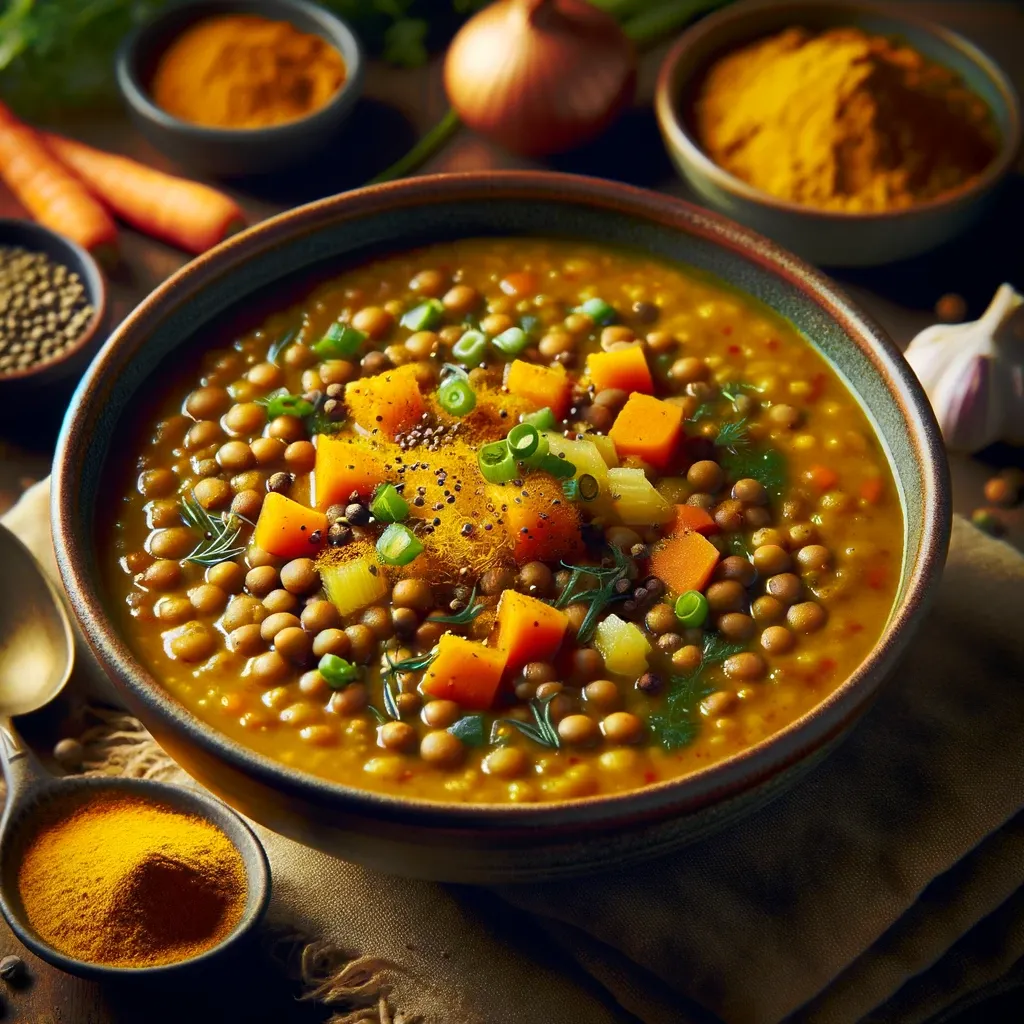
Ingredients: Lentils, vegetable broth, onion, garlic, carrots, celery, turmeric powder, ground cumin, ground coriander, fresh ginger, lemon juice, salt, and pepper.
Directions:
In a large pot, sauté chopped onion, garlic, carrots, and celery until softened. Add rinsed lentils, vegetable broth, grated fresh ginger, turmeric powder, ground cumin, and ground coriander. Simmer until the lentils are tender. Stir in lemon juice, then season with salt and pepper to taste before serving.
Mediterranean Chickpea Salad:
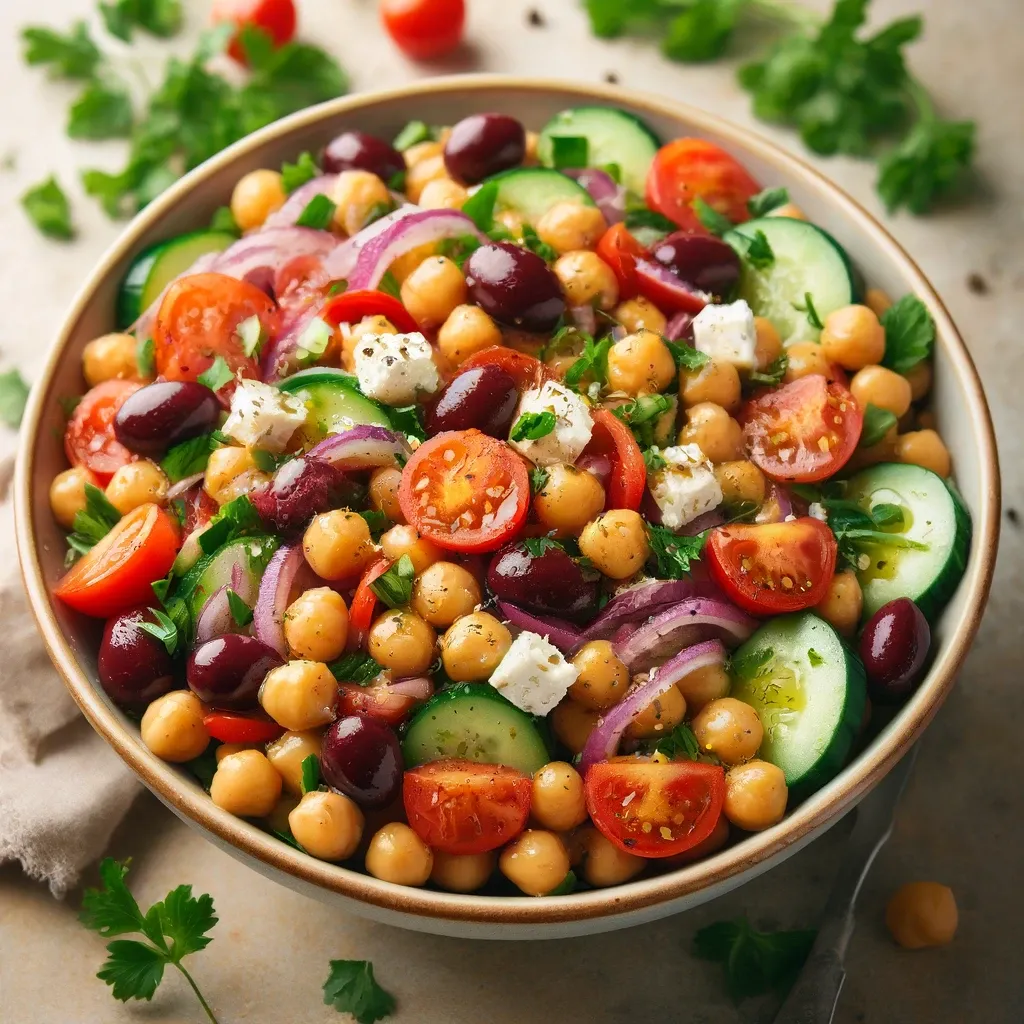
Ingredients: Canned chickpeas, cherry tomatoes, cucumber, red onion, Kalamata olives, feta cheese, fresh parsley, olive oil, red wine vinegar, dried oregano, salt, and pepper.
Directions:
Rinse and drain the canned chickpeas, then place them in a large bowl. Add halved cherry tomatoes, diced cucumber, thinly sliced red onion, halved Kalamata olives, crumbled feta cheese, and chopped fresh parsley. In a separate small bowl, whisk together olive oil, red wine vinegar, dried oregano, salt, and pepper. Pour the dressing over the salad and toss to combine.
Green Tea Smoothie:
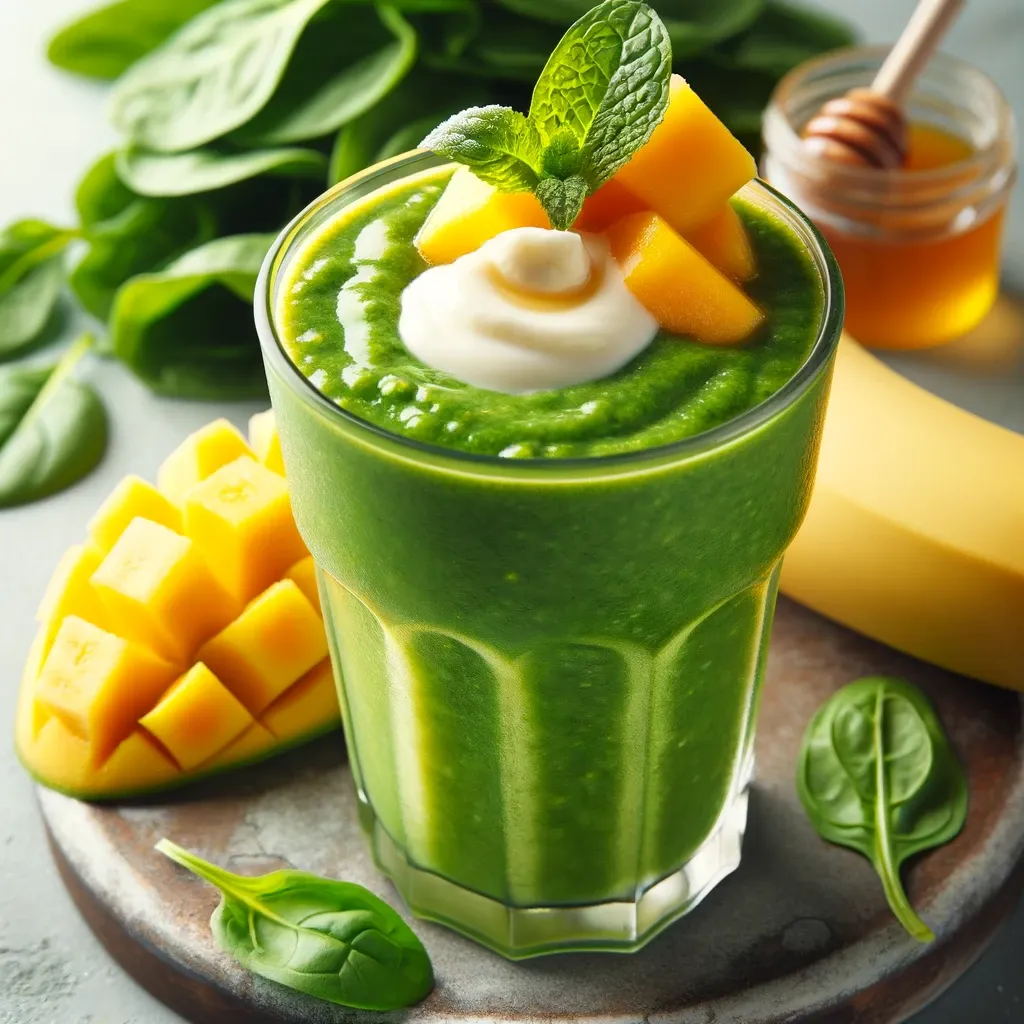
Ingredients: Green tea (cooled), spinach, banana, frozen mango chunks, plain Greek yogurt, honey (optional).
Directions:
Brew green tea and allow it to cool. In a blender, combine cooled green tea, a handful of fresh spinach, one ripe banana, a cup of frozen mango chunks, and a dollop of plain Greek yogurt. Blend until smooth. Add honey if desired for sweetness.
Anti-Inflammatory Berry Smoothie:
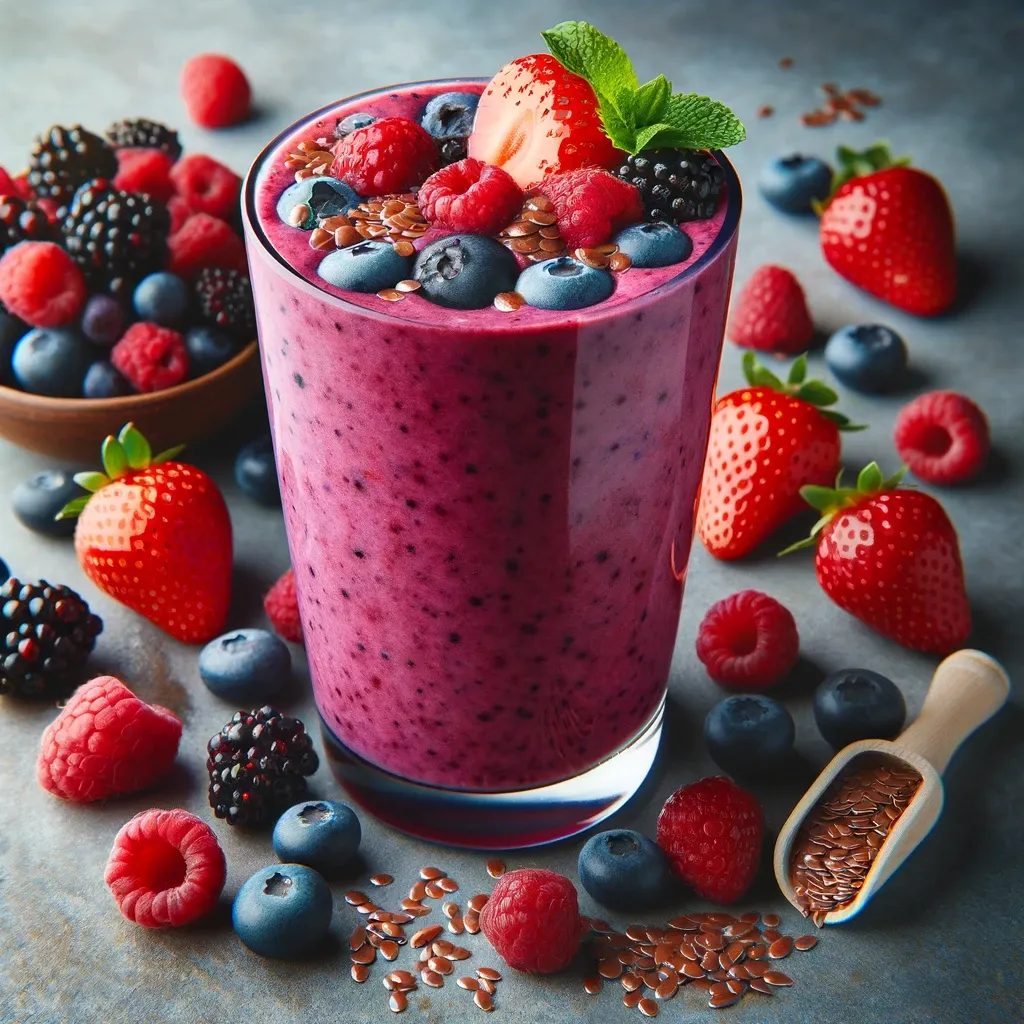
Ingredients: Mixed berries (such as strawberries, blueberries, and raspberries), almond milk, plain Greek yogurt, ground flaxseeds, honey (optional).
Directions:
In a blender, combine mixed berries, almond milk, plain Greek yogurt, and ground flaxseeds. Blend until smooth. Add honey if desired for sweetness.

Gianluca Tognon is an associate professor in public health at the University of Skövde (Sweden) and the founder of the consulting company “The Food Scientist AB.
Gianluca is an expert in epidemiology, public health, statistical methods, nutrition, and food science. As a trained biologist with a Ph.D. in nutrition, Gianluca spent more than 15 years researching public health and nutritional epidemiology to understand the problems connected to unhealthy diets.
Gianluca has consulted private companies, schools, organisations, and hundreds of private individuals who needed help with diet and health. He has presented at several conferences and events in Europe and the USA.
Gianluca is also a board member of Paincation.
More information about Gianluca is available on his website:








